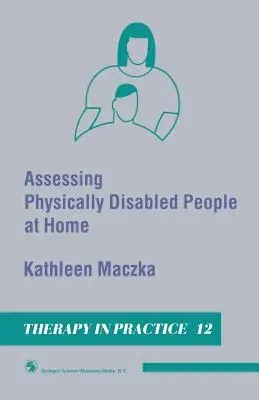Kathleen Maczka
(Author)Assessing Physically Disabled People at Home (1990)Paperback - 1990, 1 January 1990

Qty
1
Turbo
Ships in 2 - 3 days
In Stock
Free Delivery
Cash on Delivery
15 Days
Free Returns
Secure Checkout
Part of Series
Therapy in Practice
Part of Series
Therapy in Practice Series
Part of Series
Population and Community Biology (Chapman & Hall)
Print Length
126 pages
Language
English
Publisher
Springer
Date Published
1 Jan 1990
ISBN-10
0412324806
ISBN-13
9780412324802
Description
Product Details
Author:
Book Edition:
1990
Book Format:
Paperback
Country of Origin:
US
Date Published:
1 January 1990
Dimensions:
21.59 x
13.97 x
0.76 cm
ISBN-10:
0412324806
ISBN-13:
9780412324802
Language:
English
Location:
New York, NY
Pages:
126
Publisher:
Series:
Weight:
167.83 gm

